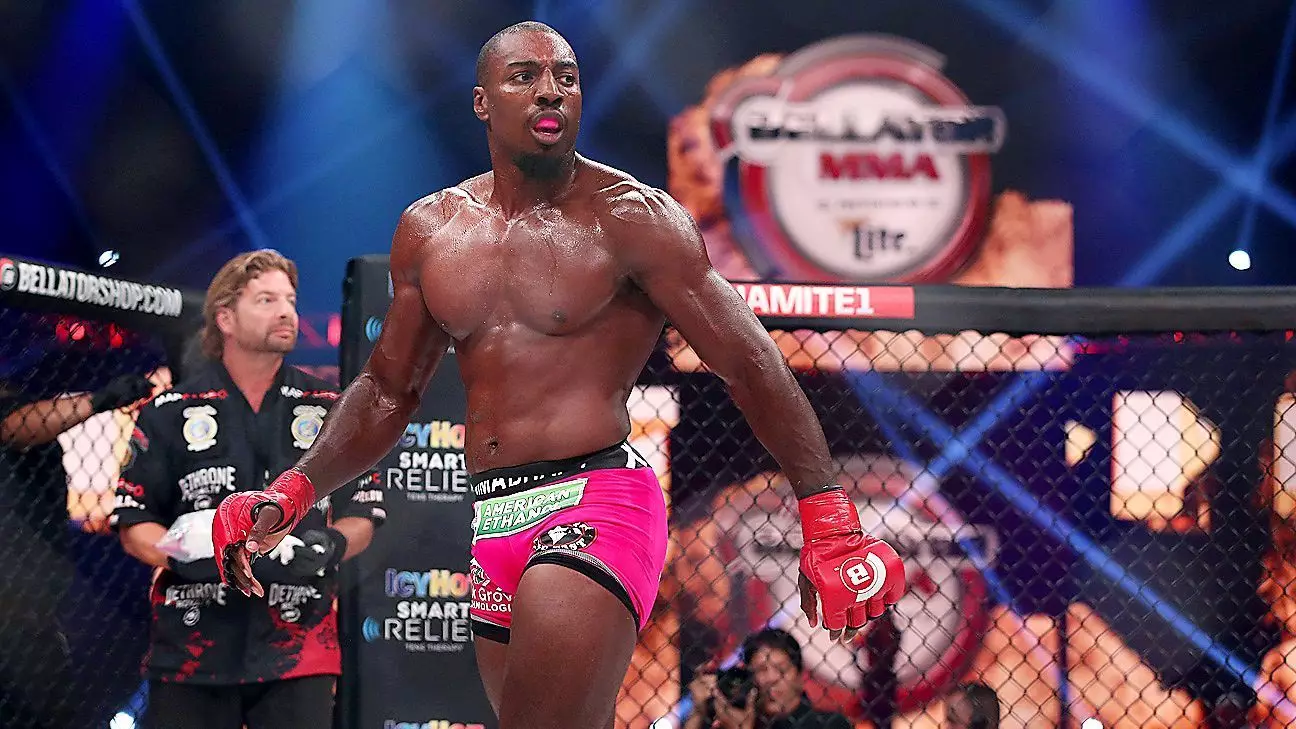In a striking move that echoes the frustrations of many in the mixed martial arts community, veteran fighter Phil Davis has filed a new antitrust lawsuit against the Ultimate Fighting Championship (UFC). This lawsuit, initiated in the U.S. District Court of Nevada, raises significant concerns about the UFC’s alleged monopolistic practices that inhibit healthy competition in the fighter marketplace. Davis, along with the legal team at Berger Montague—known for their successful $375 million class action settlement against the UFC—aims to dismantle what he perceives to be an unfair system stifling aspiring athletes and limiting their financial opportunities.
The Implications of a Stifled Marketplace
The essence of Davis’s lawsuit underscores a crucial aspect of not just sports, but any marketplace: competition breeds better conditions for participants. The claim posits that the UFC has been cultivating a toxic environment wherein it deliberately hinders rival promotions from attracting elite talent. This not only affects fighters who are under contract with the UFC but also those who may seek to compete in alternative organizations. As explained by Eric Cramer, the attorney representing Davis, the suit aims to expose the predatory nature of the UFC’s operations, illustrating how their tactics have resulted in suppressed earnings and stunted growth opportunities for fighters, including those competing outside the UFC’s dominance.
Challenges Faced by Fighters
Davis’s fight is not one merely for himself but for all athletes who deserve fairness and opportunity within their sport. A critical objective of the lawsuit is to allow fighters to break free from long-standing contractual constraints that can bind them to a promotional company indefinitely. In a sport characterized by intense physicality and unpredictability, it is unjust for fighters to be subject to contracts that extend over unspecified timeframes. Davis proposes a more equitable approach, advocating that after one year, fighters should have the right to terminate their contracts without financial penalties. This modification would empower fighters, making it easier for them to transition to other promotions that offer better opportunities for growth and success.
The Broader Fight: Securing a Future for Fighters
Davis has been vocal about his mission, stating, “I am proud to stand up for professional MMA fighters to unlock the UFC’s stranglehold on the entire sport.” His statement encapsulates a sentiment that resonates deeply among many fighters who struggle under the weight of restrictive contracts and the difficulty of navigating a single-promoter-dominated landscape. The UFC’s lack of a response thus far raises eyebrows; it indicates the potential sensitivity of the situation as the organization may be facing numerous antitrust lawsuits all at once.
Reflection on the MMA Landscape
The ramifications of these legal battles could redefine the entire mixed martial arts framework. With organizations like Bellator and the Professional Fighters League (PFL) now more integrated than ever, the landscape is shifting. If Davis’s lawsuit succeeds, it is plausible that new promotional companies will emerge, invigorating the sport with fresh competition and ultimately benefiting the fighters who fuel it. For the MMA industry, this lawsuit could signify a new dawn—one where athletes are no longer viewed merely as assets, but as empowered individuals deserving of autonomy and fair compensation. The stakes are grand as the outcome remains uncertain, but the fight for justice has begun, and fighters like Phil Davis are leading the charge.


Leave a Reply